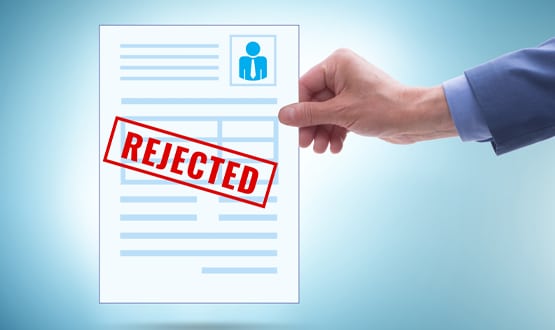Joe’s View: On turkey and the trip to Abilene
- 18 December 2018

Merry Christmas, dear reader. As our nation tears itself apart on the alter of Brexit – it seems we may be hurtling towards no deal, which only a handful of swivel-eyed hardliners support and which nobody voted for – we can at least take comfort in the one thing that unites us as a nation at this time of year. In fact it’s something on which the whole world can agree: we all hate turkey.
We eat it once a year for a reason. It’s crap. It’s dry and tasteless. I don’t care if you’ve brined it for a week, slathered it with cranberries and stuffed it with a duck, stuffed with a pigeon, stuffed with a budgie, no one on death row is going to ask for turkey as their last meal.
But will I have turkey on Christmas Day? Of course. Would I rather have a leg of lamb? Of course. Would the rest of the family rather have a juicy flavoursome leg of lamb? Of course. Despite all being in agreement we will do something nobody wants to do. Have turkey. Hard Brexit.
Thinking of Abilene
To cheer you up I have a Christmas present for you: the Abilene Paradox. You can watch Jerry B Harvey hilariously describing its application from the bedroom to the boardroom, or read his 1974 article “The Abilene Paradox: The Management of Agreement”.
Harvey describes how, during a visit to his in-laws, the family was cheerfully playing dominoes and drinking ice cold lemonade in the house. Outside, meanwhile, the red hot Texas summer sun baked the ground to dust; the dust then picked up by the wind and deposited everywhere. Masking tape was deployed on windows and wet towels put under doors. Flies buzzed at the window. 35 degrees in the shade. An egg sizzled on the car bonnet.
His mother-in-law said she hadn’t been to Abilene for years. Someone mentioned a cafeteria on the outskirts of the city. Someone suggested they go there for lunch. So the whole family squashed into their ageing, un-air conditioned vehicle and drove the 55 miles to Abilene on rough unmetalled roads in stifling heat and dust. Nauseated and dripping with sweat they ate at the cafeteria, a meal inferior to what they had at home, got back in the car, and drove the sweltering 55 miles back.
As the family began recovering from the ordeal in the cool of their home, Harvey remarked: “Well that was a great trip”, eliciting a long drawn out expletive from his father in-law which was followed by what they still call “The Family Fight”. They fought over whose stupid idea it was to go to Abilene in the baking heat and have average food miles from home. Everyone claimed to have known how stupid an idea it was but no one wanted to say it because everyone else seemed to like it. Despite all being in agreement they all did something they didn’t want to do. Turkey. Hard Brexit. Abilene.
Managing agreement
Harvey describes this Abilene Paradox as the problem of “managing agreement”. He describes the key driver in these false agreements as being anxiety. Anxiety about upsetting other people, anxiety about appearing rude.
In his lecture he goes on to describe a company that ran itself into bankruptcy undertaking a project that everyone knew was hopeless. One key staff member said words to the effect of: “Everyone else believes in the project. If I speak up I will lose my job and I wont be able to make my mortgage payments.” Unfortunately everyone else was doing the same and the company went bust.
As a contemporary political example of the paradox, Harvey cited the war in Vietnam. Because of anxiety about appearing to show weakness and the domino theory on the spread of communism, 70,000 Americans and many more Vietnamese went to their deaths.
“OK, Joe, what the hell does all this have to do with our current health IT landscape?” Well some of you will already have drawn parallels with the National Programme for IT, which was clearly on the bus to Abilene when it set off and which travelled for 10 years, but that’s not why I bring up the paradox now.
We’re going the wrong way
I bring it up now because I recently saw a man on ParliamentLive.TV, and on the back of the bus to Abilene, raise his hand and say: “Stop the bus, we’re going the wrong way.” If we listen to this man we may get to deliver on Matt Hancock’s new vision for health IT. If we don’t, we won’t. That man is Tom Loosemore, cofounder of the Government Digital Service and now an independent consultant,
At the heart of Loosemore’s evidence to the science and technology select committee was a great insight into how we fund government IT, including health IT. It is something we all know but don’t talk about – after all, it appears churlish when offered millions for your project to complain about how the cheque is written.
But it is an issue we need to address. As a rule, we generally have to write business cases to gain capital funding from the treasury. The nature of complex adaptive systems like healthcare means that successful IT projects are by definition agile and iterative, but the business cases must be filled with milestones and what Loosemore calls “false certainties”.
Services, not motorways
He points out that capital expenditure is utterly unsuitable in a cloud-based world in which “we are building services, not motorways”. We need operational expenditure. Capital forces us into quick decisions to buy more of the same from the usual suspects and prevents the disruptive innovation at the scale I think Matt Hancock is talking about.
We are layering expensive shackles on ourselves to “get the money out the door this year” year in, year out. It’s time to have a grown up conversation about digital government and how you fund it. Time to stop the bus.
I have been sweating on the bus to Abilene for 15 years now. I want to get off, go home and have a nice leg of lamb for Christmas dinner. Come on over – bring some mint sauce. Merry Christmas to you all and may your Brexit go with you.





4 Comments
Joe,
I LOVE turkey – but don’t get me going about Brexit 🙂
As I write this, we’re in that reflective period between Christmas and New Year. Tom Loosemore, like myself and thousands of others, is now in a position where he can tell the Emperor that his new clothes (like so many things in the software world) are nothing but vapourware and that current strategies are based on false premises.
The real question is whether anyone in authority will pay any attention to this independent reality check.
Several people (some very senior) within the National Programme pointed out that the trip to Abilene was doomed because the road wasn’t yet in place, the car hadn’t yet left the drawing board, the World land speed record would need to be broken if we were to arrive at the agreed time and that the driver was receiving conflicting instructions from the back street drivers in Number 10 and from across the road in Richmond House. Sadly, all those people who were brave enough to raise such concerns were dismissed by the driver. A Führerbunker mentality had developed in which negative thinking was branded as treacherous, regardless of intention. Let’s hope nothing similar happens again within the current NHS digital nitiatives.
To give him some credit, before he moved to the Foreign Office Jeremy Hunt had come to the conclusion that the NHS needed a long term financial settlement and a long term plan if we were to break the current 12 month capital cycle where funding is announced and by the time all the bids have been evaluated there is less than six months (if that) to spend the money before it is clawed back by the Treasury. This applies to the digital agenda as much as it does to improving cancer and mental health outcomes.
Sadly, any significant change will require cross-party support and an agreed strategic consensus. Given that Parliament has effectively shut down debate and discussion about anything other than Brexit for the forseeable future and the economic uncertainty (for better or worse) our departure from the EU will bring, I doubt we will see any major decisions regarding the NHS within the next two years.
I hope to be proved wrong … but I’m glad I stepped off that particular bus, however much I enjoyed your company along the way!
Best wishes to you and to everyone reading this for the New Year!
Dave
Excellent but try a succulent Herefordshire beef burger or wild venison. Happy to supply the cider to go with it. See you both soon?
Happy Christmas thanks from your readers and our empowered patients!
Merry christmas, we decided years ago that Turkey was generally inedible, so have avoided it. Love to do the same with Brexit. it’s very noticaoe that the early achievers on innovating inteloperability in the NHS are those organisations with an internal development capability, working with industry, but able to do some heavy lifting themselves, and that requires both revenue, and stability of direction. So the other present that would be cool would be to avoid urgent initiatives that cut across all we are trying to achieve locally, and undermine it.
Heartily agree Joe. Its a crazy spending merry go round. The driver of this bus claims he used to drive buses in his other job. However when interviewed on the today programme, Mr Hancock had obviously never heard of SCR (AI or otherwise) Patient on line was a great idea he was going to ensure happened and had ear marked a couple of million to do it. He hasn’t realised the bus is on an infinite roundabout and the potholes just get bigger.
Comments are closed.